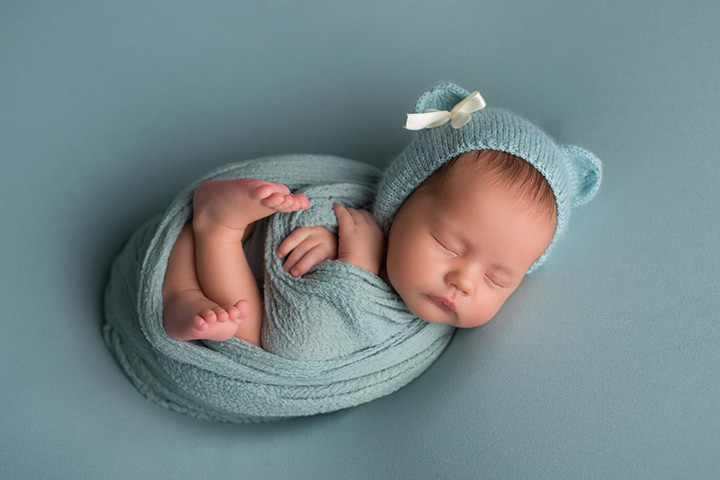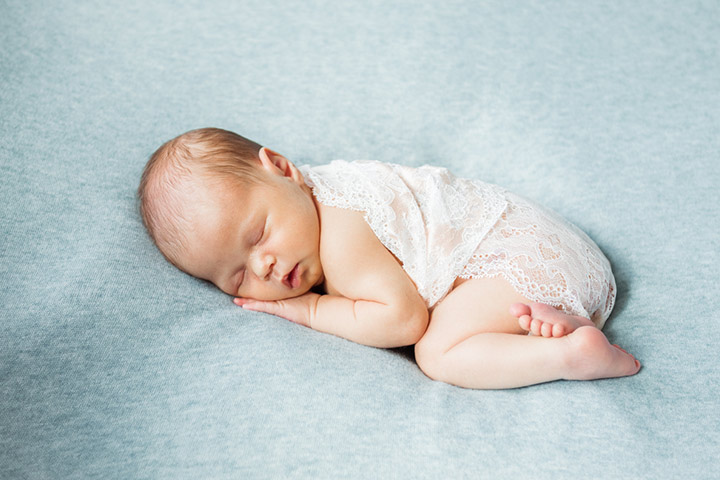
Shutterstock
If you’ve just had a baby, congratulations! You are now parents to a tiny human that you’ve been waiting for in anticipation for nine months. After all the struggle of pregnancy, you’ve welcomed the tiny tot into your lives, and we can imagine the excitement that comes with it. You might also be filled with fear and nervousness about raising your newborn, who is entirely dependent on you. No matter how much you’ve prepared for the arrival of your baby, when they arrive, you will be engulfed with surprises.
You will face several situations that leave you in utter panic and anxiety, which is normal for new parents. But remember not to freak out and jump to conclusions. Without further ado, let’s look at some surprising facts about newborns that might be strange but actually indicate good health:
1. Your Infant’s First Poop Doesn’t Stink
Your newborn is as cute as a button, and there’s no denying that. However, no matter how adorable they are, some things about parenthood are not pretty — diaper duties, for example. But the stinking truth is that (see what we did there?) you have no choice but to deal with it. However, did you know that your newborn’s first poop, known as meconium, doesn’t have a foul smell?
Yup, you read that right! Meconium is usually sticky, dark, thick, and possibly green. It is your newborn’s first poop and usually passes in the first few hours or days after birth. In cases of late pregnancy, babies might pass meconium while still in the womb (1). So, don’t freak out if your baby’s poop has no smell. It’s absolutely normal!
2. Your Infant Might Stop Breathing
Image: Shutterstock
When your baby is asleep, it’s natural for them to pause without a breath for about ten to twenty seconds. Of course, as parents, when you notice that your infant has an irregular breathing pattern, you may start to worry. But hold on! Before you do, hear us out. What your baby is going through is called apnea, and it is quite common among newborns. They are likely to outgrow this sleeping condition by around eight to twelve months (2). So, hold your horses!
You might be wondering what causes apnea. Well, there could be several reasons — heart disease, neurological issues, genetic causes, or gastrointestinal issues. But the most common reason is that when your baby is asleep, their brain activity reduces, making the breathing slow and shallow. That could lead to some pauses in their breathing (3). So, don’t assume the worst unless you notice that your baby is uncomfortable.
3. Your Infant Cries Without Tears
Image: Shutterstock
You would have probably heard your parents talking about “crocodile tears” when you fake cry. But did you know that babies can cry without any tears at all? During the first few weeks of your baby’s birth, their tear ducts have not fully developed. So, when they cry, there could be no tears. It doesn’t indicate that they are fake crying, so don’t dismiss your baby’s woes.
According to the American Academy of Ophthalmology, around twenty percent of babies are born with nasolacrimal obstruction, meaning they have blocked tear ducts (4). However, remember that it’s absolutely normal for your baby’s tear ducts to be blocked or underdeveloped and it usually gets better on its own as your infant grows up. But in rare cases, it’s better to consult a medical professional if your baby is in discomfort.
4. Your Infant Might Have A Mini Period
Image: Shutterstock
No, you didn’t read that wrong! Your little princess might have a mini period soon after birth, but there’s no need to panic because it’s pretty common. It can begin anywhere from two to ten days after birth and usually lasts for about three to four days. These mini periods are called false menses and occur because of the mother’s sudden drop in estrogen levels (5).
Another peculiar but normal phenomenon is your newborn having breasts! Because of the fluctuations in the hormone estrogen, your newborn may have some swollen breasts and may even secrete breast milk. The swelling may be hard or soft but is seen in both boy and girl babies. However, once the hormone levels of estrogen and prolactin come down, your baby goes back to normal (6). So, if you see your baby bleeding or producing breast milk, fret not — that’s what’s supposed to happen!
5. Your Infant Might Have A Hard On
Image: Shutterstock
Your little prince might have an erection before he pees! No, we aren’t kidding! It’s pretty natural for infant boys to have a penile erection, often before they urinate. Although this condition is rare, it’s not unheard of and can happen even on day one of your baby boy’s birth. It is known as neonatal priapism, and it is considered a “rare entity” in the scientific world (7).
Life is quite a surprise, and with every new life comes a new set of surprises! When a baby is born, it brings a ton of learnings along with it, and as parents or caretakers, we can only be amused by what we learn. How many of these newborn facts were a shocker to you? Let us know in the comments below if you learned anything new when you had your baby!
















